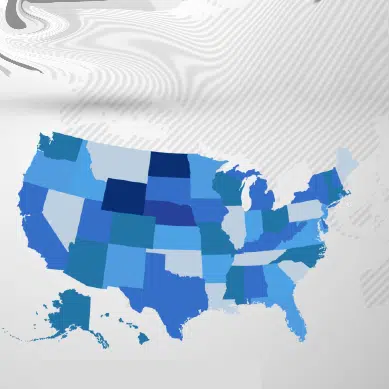What is a Due Diligence Questionnaire (DDQ)?
When companies evaluate a potential vendor or M&A transaction, they’ll use due diligence processes to uncover risks inherent in the engagement. A due diligence questionnaire, or a “DDQ,” is a list of relevant questions to ask potential parties you’re considering doing business or partnering with.
These questions provide key information to the buyer company to help them determine whether the company in question upholds its regulatory, security-based, or other important standards.
Due Diligence is a broader term than a due diligence questionnaire (DDQ). It refers to the general investigative process. A due diligence questionnaire (DDQ) is a comprehensive set of questions that assures that all bases have been covered.
Due diligence questionnaires are usually used at the onset of a third-party engagement or acquisition. They can also be used at set intervals throughout the relationship to ensure that the vendor remains compliant with changing laws and requirements.

DDQ’s are Particularly Beneficial For:
M&A’s
Companies want to ensure that merging or buying another company would boost earnings. Corporations use DDQ finance questionnaires to evaluate the target’s compliance, finances, contracts, legal issues, and other considerations. The questionnaire helps firms assess the target’s compliance, finances, contracts, legal issues, etc.
Did you know?
- Companies that perform due diligence on the target’s technology are 2.8 times more likely to achieve a successful outcome than those that don’t. (Source: McKinsey & Company)
- The average time spent on due diligence for technology companies is 12 weeks. (Source: KPMG.)
Third-Party Due Diligence Questionnaire
Vendor due diligence questionnaires help companies mitigate vendor and third-party risks by enabling a comprehensive third-party risk assessment before pursuing a business relationship.
Did you know?
- 80% of tech executives said data security and privacy are the most important factors to consider during tech due diligence. (Source: West Monroe Partners)
Private Equity Investments
LPs require precision in their fund vetting process. Concerns about regulatory alignment, governance, and transparency are central to the investment vetting process. Standardized DDQs streamline the process, allowing managers to provide more extensive responses as needed.
Did you know?
- 70% of private equity firms conduct tech due diligence before investing. (Source: PitchBook)
Start Getting Value With
Centraleyes for Free
See for yourself how the Centraleyes platform exceeds anything an old GRC
system does and eliminates the need for manual processes and spreadsheets
to give you immediate value and run a full risk assessment in less than 30 days
What Should a Cyber Security Due Diligence Questionnaire Ask?
The primary purpose of due diligence is to evaluate and uncover the risks associated with the company in question to identify the value of the transaction or deal. To this end, a due diligence questionnaire template typically focuses on the following:
- Organizational Structure: Gain insights into the company’s organizational hierarchy, including divisions, departments, and reporting lines. Understanding the structure helps assess decision-making processes and accountability within the organization.
- Board Membership: Identify the individuals serving on the company’s board of directors, including their qualifications, experience, and affiliations. Assessing the composition of the board helps evaluate its independence, expertise, and ability to provide strategic guidance.
- Supply Chain Overview: Gain visibility into the company’s supply chain network, including suppliers, vendors, and partners. Assessing supply chain relationships helps identify potential dependencies, vulnerabilities, and risks associated with third-party engagements.
- Regulatory Compliance: Determine the company’s adherence to industry regulations, standards, and compliance requirements relevant to its operations. Assessing compliance practices helps mitigate regulatory risks and ensures alignment with legal obligations.
- Cybersecurity Protocols: Evaluate the company’s cybersecurity measures, including data protection policies, access controls, and incident response plans. Assessing cybersecurity practices helps mitigate cyber threats and safeguard sensitive information from unauthorized access or breaches.
- Legal Standing: Verify the company’s legal standing by reviewing its corporate filings, licenses, and litigation history. Assessing legal standing helps identify any pending legal issues, disputes, or regulatory violations that may impact the company’s operations or reputation.
- Financial Statements: Review the company’s most recent financial statements, including balance sheets, income statements, and cash flow statements. Analyzing financial performance helps assess the company’s profitability, liquidity, and overall financial health.
- Competitive Landscape: Identify the company’s competitors and analyze their market positioning, strengths, and weaknesses. Assessing the competitive landscape helps identify market trends, opportunities, and potential threats to the company’s market share or growth prospects.
- Customer Base: Understand the company’s customer demographics, preferences, and acquisition channels. Analyzing the customer base helps assess market demand, brand loyalty, and customer satisfaction levels, informing marketing and sales strategies.
By asking these comprehensive questions during due diligence, stakeholders can gather essential information to accurately assess the company’s operations, risks, and growth potential. This enables informed decision-making and risk mitigation strategies during the investment or acquisition.
Do Your Dues with Centraleyes
Managing risk requires proactivity. This also makes due diligence questionnaires so valuable: They offer the opportunity to uncover critical information about third parties and target companies before formalizing the relationship.
Centraleyes’ risk and compliance platform allows you to gain acute visibility into your target company’s ecosystem and (even its vendors)! Our streamlined due diligence process empowers you to uncover critical information efficiently. With customized questionnaires, automated workflows, centralized information, and real-time monitoring, you can confidently navigate due diligence.
Staying on top of risks is likely the most glaring need in external business engagement, which is why due diligence questionnaires and processes are so valuable. Enhance compliance and project your standards to third-party relationships and vendors.
Discover the power of Centraleyes today!
Start Getting Value With
Centraleyes for Free
See for yourself how the Centraleyes platform exceeds anything an old GRC
system does and eliminates the need for manual processes and spreadsheets
to give you immediate value and run a full risk assessment in less than 30 days





